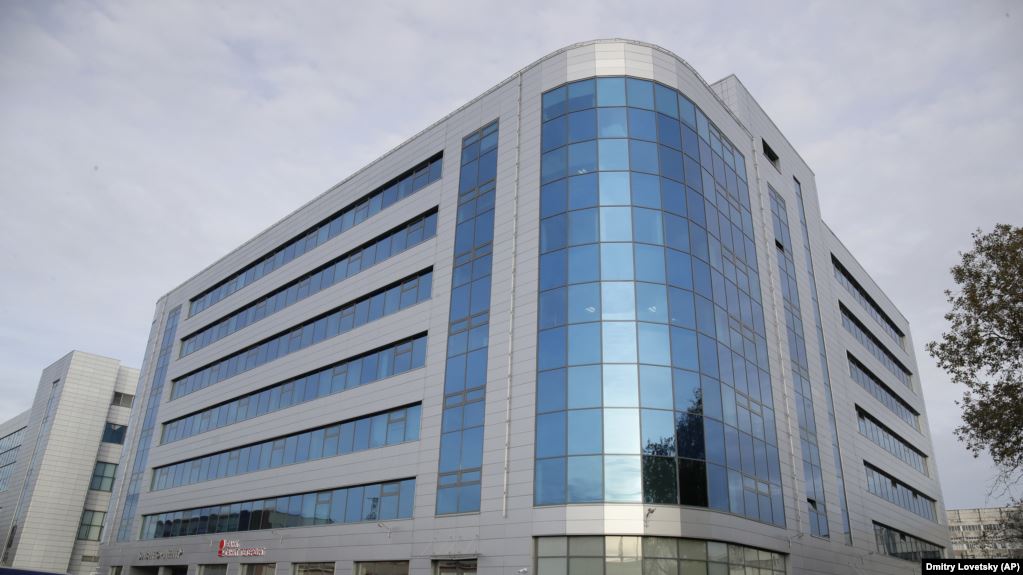
By Polygraph
“The Mueller report did not provide any proof of the troll factory’s ties with the U.S. election interference.”
False
The Mueller report contains 30 pages of detailed information about the Russian “troll factory” activities that resulted in a grand jury indictment.
During live TV coverage of the Special Counsel Robert Mueller’s testimony before the House Judiciary Committee on July 24, RT host Murad Gazdiev said: “The Mueller report did not provide any proof of the troll factory’s ties with the U.S. election interference.”
This statement is false.
Not only does the Mueller report detail how the Russian troll factory — the Internet Research Agency (IRA) — interfered in the 2016 U.S. presidential election, but the special counsel criminally charged 13 Russian nationals working for the troll factory with conspiring against the United States. The grand jury indictment alone contains 37 pages of information describing the Internet Research Agency’s operations targeting the U. S. election in 2016. It included financial documents and fraudulent usage of identities of U.S. persons (See United States v. Internet Research Agency, et al., No. 18-cr-32 (D.D.C.).
Mueller’s report names the St. Petersburg-based IRA 10 times in over 30 pages of detailed information about its activities to influence the U.S. election.
The report’s executive summary starts by identifying Russian media campaigns aimed at disrupting the U.S. political process:
“The Internet Research Agency (IRA) carried out the earliest Russian interference operations identified by the investigation — a social media campaign designed to provoke and amplify political and social discord in the United States. The IRA was based in St. Petersburg, Russia, and received funding from Russian oligarch Yevgeniy Prigozhin and companies he controlled. Prigozhin is widely reported to have ties to Russian President Vladimir Putin,” the reports says on p. 4.
Yevgeniy Prigozhin, also known as “Putin’s chef,” is among the 13 Russian nationals indicted by Special Counsel Muller on February 16, 2018. The Internet Research Agency, which the Russian oligarch founded, topped the grand jury indictment by Robert Mueller. Two companies that Prigozhin controls, Concord Management and Consulting LLC and Concord Catering, were also charged with bankrolling the IRA’s operations designed to interfere with elections and political processes in the United States
Mueller’s report is very specific about the role IRA played in disrupting the U.S. political process through “information warfare” – a term that was evidently used by IRA itself. The report states:
“The IRA later used social media accounts and interest groups to sow discord in the U.S. political system through what it termed ‘information warfare.’ The campaign evolved from a generalized program designed in 2014 and 2015 to undermine the U.S. electoral system, to a targeted operation that by early 2016 favored candidate Trump and disparaged candidate Clinton. The IRA’s operation also included the purchase of political advertisements on social media in the names of U.S. persons and entities, as well as the staging of political rallies inside the United States. To organize those rallies, IRA employees posed as U.S. grassroots entities and persons and made contact with Trump supporters and Trump Campaign officials in the United States.”
Interestingly, almost half of the chapter on Russian social media influence operations conducted by IRA has been redacted in the special counsel’s report, as the information pertains to ongoing court cases or continuing investigations by other prosecutorial bodies. This is bad news for those, like RT host Murad Gazdiev, who deny the connection between the Russian “troll factory” and the U.S. election interference. These cases will require that more evidence is presented to the court, potentially keeping public attention on Moscow’s information warfare for months.
Prosecutors in the U.S. often provide only preliminary evidence sufficient for a grand jury to weigh in on bringing criminal charges or not, saving the key evidence for the trial. This could mean that Mueller’s February 2018 indictment of the Internet Research Agency, its funders and staffers, is just the beginning of federal prosecutors’ unveiling of the Russian troll factory’s malicious activities. The indictment says the U.S. election interference effort, which was called “Project LaKHta,” spent more than $1 million per month in 2016 on what it called “information warfare” against the U.S.
The U.S. court cases against the IRA and its staffers may also be helped by additional evidence collected by researchers around the world, such as the recent report by the Oxford University’s Computational Propaganda Research Project. The report, entitled “The IRA, Social Media and Political Polarization in the United States, 2012-2018,” offered the first major analysis of IRA’s attack on the U.S. based on data provided by social media firms to the Senate Select Committee on Intelligence (SSCI).
Polygraph.info has debunked a number of claims denying the Russian troll factory’s interference in the 2016 U.S. presidential elections. One of the most powerful testaments to the IRA’s activities is Polygraph.info’s interview with Lyudmila Savchuk, who infiltrated the IRA with the goal of exposing it. Savchuk even went to a Russian court with a claim against the troll factory, but her suit was unsuccessful. “The factory is just the tip of the iceberg; what is below is a massive machine that is spreading propaganda and disinformation all over the world,” she said.
By Polygraph








